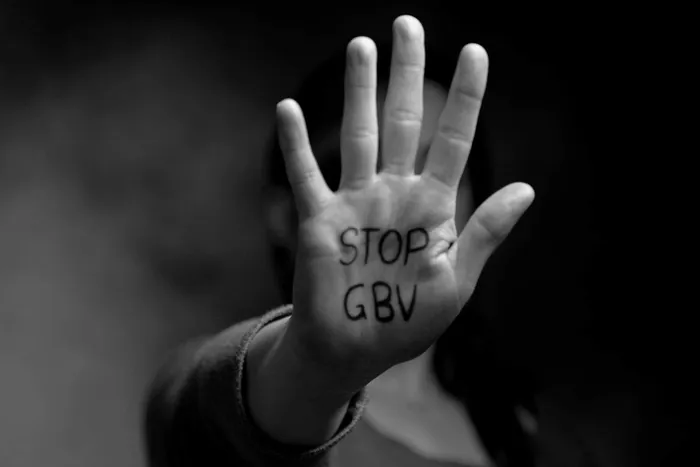Addressing domestic violence: The unfulfilled promises of CEDAW in South Africa

Women’s Legal Centre asked the government to implement recommendations set out by the UN Convention on the Elimination of All Forms of Discrimination Against Women (CEDAW) to end domestic violence.
Image: File
The government has been requested to put the recommendations of the UN Convention on the Elimination of All Forms of Discrimination Against Women (CEDAW) into action to eliminate domestic violence in the country.
The Women’s Legal Centre (WLC) said there are many recommendations that the government has not implemented five years later, following CEDAW’s visit.
The centre, through its Gender Responsive Research and Advocacy on CEDAW (GRACE) Project, established that the situation remains dire despite the recommendations set out by the committee.
During its three-day visit in 2019, the CEDAW committee engaged with experts, survivors, and civil society organisations.
This was after the WLC, along with partner organisations, in 2013, formed a National Task Team and submitted a formal request to the CEDAW committee to investigate South Africa’s response to domestic violence, reporting that the high levels of domestic violence in South Africa amount to a grave concern
CEDAW’s findings in 2021 were unequivocal: the South African government was in grave and systemic violations of its due diligence obligation to prevent and investigate acts of domestic violence, prosecute and punish perpetrators of domestic violence, and provide effective remedies for victims of domestic violence.
The committee further noted various violations of rights under the convention, including the right to live free from domestic violence, the right to access to justice, and victim support.
In response to these failures, CEDAW issued 21 formal recommendations, including the prevention, investigation and punishment of all forms of domestic violence, the implementation of a National Strategic Plan on gender-based violence (GBV) with dedicated funding and the adoption of the Women Empowerment and Gender Equality Bill, prohibiting discrimination.
The committee also suggested that the government should institutionalise affordable or free legal aid for domestic violence victims, strengthen accountability measures for SAPS officers, and ensure prompt handling of domestic violence cases.
It added that offenders should be prosecuted, denied bail, and penalised adequately, and that drug and alcohol treatment and education programmes in communities and schools should be implemented, adding that civil society organisations conducting awareness should be financially supported.
The WLC said the Grace research report, conducted in 2025, found that the situation remains dire.
According to the research, the country had the highest number of reported rape cases per capita in the world in 2022. SAPS data confirms that 40,035 rapes were reported in 2017 to 2018, rising to 42,780 in 2022 to 2023, and slightly decreasing to 42,569 in 2023 to 2024.
In the same timeframe, femicide surged. Between 2021 and 2024, the number of women murdered rose by 33.8%, from 3,771 to 5,578. From 2023 to 2024, 80% of all reported sexual offences were rapes, accounting for more than 42,500 cases.
The centre said these findings reinforce what survivors and advocates have long said, that South Africa’s laws are not implemented effectively and are not protecting women in practice.
Meanwhile, the Department of Women, Youth and Persons with Disabilities said there is no backlog for GBVF cases, adding that since the establishment of the National Prosecuting Authority (NPA) and SAPS project, a total of 52,101 cases were prioritised for analysis and finalised as directed by the court and NPA.
The department said the successful finalisation of all GBVF case backlogs and the significant number of cases prioritised and finalised by the NPA and SAPS project represent a major achievement in ensuring timely justice for survivors.
The department said 223 healthcare facilities were designated across nine provinces and their services include medical examination, DNA evidence collection, PEP/HIV testing, compulsory HIV test for sex offenders, and medical reports for the court.
The department added that 95% of child support grants are paid to women, and an inter-ministerial committee on GBVF and substance abuse was established to deal with interlinked social ills.
However, WLC said the legal framework is strong on paper but frequently fails due to poor enforcement, chronic underfunding, and fragmented implementation.
The centre added that there is a widespread lack of accountability, adding that government actors often face no consequences when they fail in their duties.
“Frontline workers, including police and court officials, lack training, and awareness of domestic violence law. Protection orders are inconsistently applied, often ignored, and in some cases, women were murdered despite having one in place,” said WLC, adding that there is also a lack of meaningful partnership between government and civil society, with some organisations afraid to speak out due to funding risks.
“CEDAW is not just symbolic; it is legally binding. The government didn’t just sign it; it committed to it by its ratification of the convention. And yet, women are still experiencing violence and being killed.”
Related Topics: